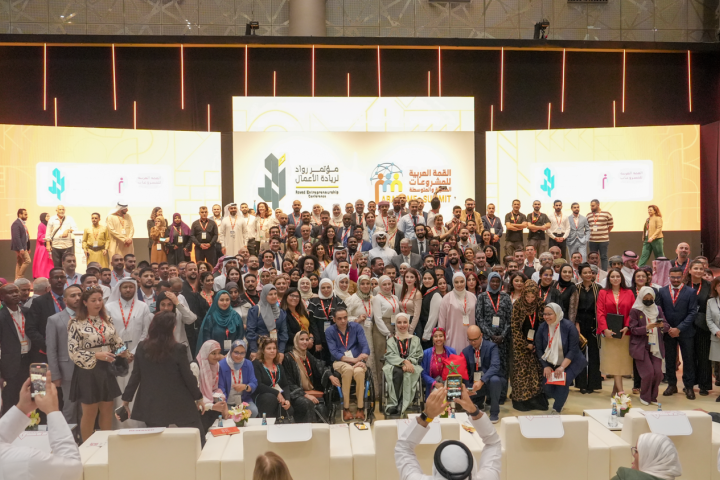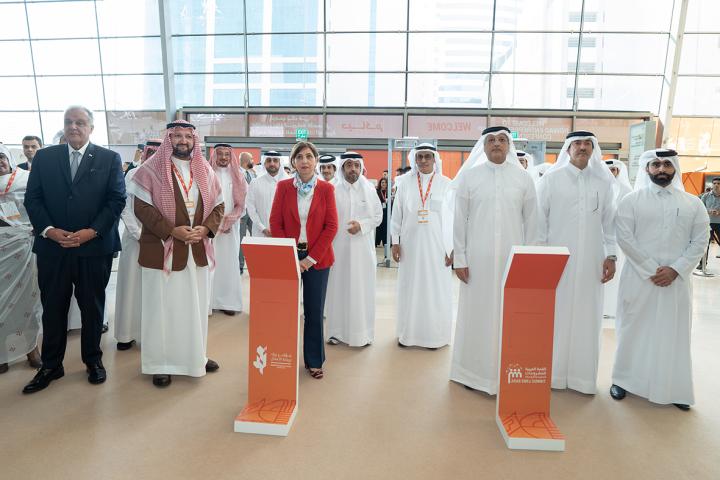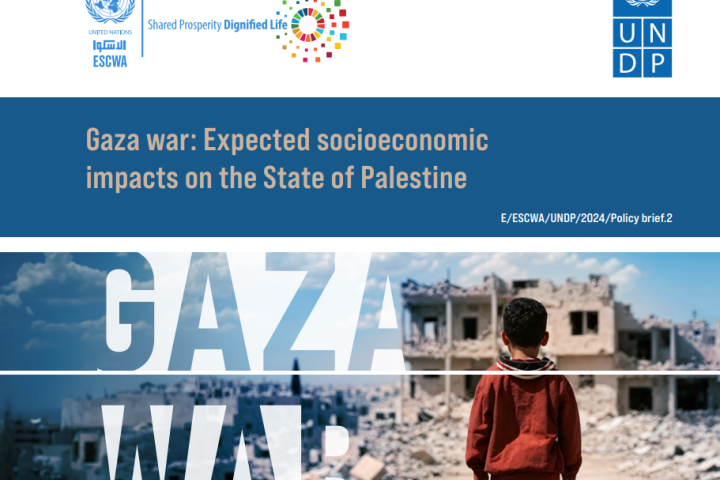UNESCWA Executive Secretary Mervat Tallawy said Monday member countries really need a regional institution that works toward increasing demand for technology and investing it better in socio-economic development. Tallawy was speaking at the opening of the Third Meeting of the UNESCWA Consultative Committee on Scientific and Technological Development and Technological Innovation (ESTIC) at the Holiday Inn Dunes Hotel (Verdun) in Beirut.
A major focus of this meeting is the establishment of the ESCWA Technology Center (ETC). Tallawy said the need for such a Technology Center led to the adoption of a Resolution at the last UNESCWA Ministerial Session in May 2005. As a result, the Executive Secretary was asked to prepare a report on this issue, which she presented during today’s Meeting so that Committee members might discuss it and take the necessary decisions. Tallawy pointed out that UNESCWA has contacted a number of member countries and other parties in an effort to finance this initiative. She explained that the ETC will seek to assist member countries in increasing the demand for technology through: raising awareness of the importance of science and technology to the economies of the region; identifying mechanisms for increasing the level of technology in these economies; and promoting the establishment of national and regional projects that lead to: the adoption and generation of technology; increasing the adoption and generation of technology; and increasing national and regional capacity to transfer and absorb technology. “All these goals will serve to increase economic and social growth,” said Tallawy.
Mr. Yousef Nusseir, Chief of Information and Communication Technology Division (ICTD) at UNESCWA, also spoke at the opening of the meeting. He noted that, despite the progress achieved in the role of technology (particularly ICT) in the development process, it still falls short of the level required and does not answer the needs of people in the region. “In an effort to elaborate the developmental role of science and technology, UNESCWA gives great attention to providing the support and contribution needed in national capacity-building of UNESCWA member countries to empower them in answering their societies’ needs, directing their economies towards a knowledge society, and raising their competitiveness on the regional and international level.”
During the course of the Meeting, Committee members will address three main issues at the Third Meeting of ESTIC: Progress made in the implementation of the recommendations of the 2nd meeting of the ESTIC, and proposed list of recommendations for the 3rd meeting; objectives and activities of the proposed ETC; pre-feasibility study for the establishment of the ETC; experiences in similar Technology Centers; financing and identification of the most appropriate location for the ETC; ICTD previous activities 2004-2005, and work programme for 2006-2007 biennium; and the proposed strategic framework for 2008-2009. The following results are expected to be submitted to the 24th Ministerial Session for approval by UNESCWA member countries. The most important meeting outcome will be a final Pre-feasibility Study on the establishment of the ETC, with recommendations related to its establishment; a draft resolution related to the ETC that will be proposed for adoption at the Session; recommendations for essential changes to the 2006-2007 work programme; and a refinement of the proposed strategic framework for 2008-2009.
Participants in the Meeting, which will continue until tomorrow, 7 March 2006, include a selected group of distinguished managers and experts in science, technology and innovation, including ICT, from academic institutions, research centres, governmental institutions, ministries and enterprises engaged in innovative activities, as well as representatives of international and regional multilateral development agencies.



